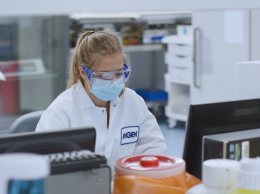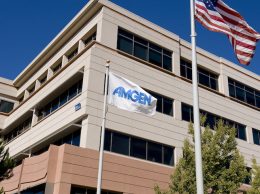A Phase 3 clinical study of Amgen’s multiple myeloma drug Kyprolis showed that it increased overall survival rate when paired with lenalidomide and dexamethasone versus just those two drugs alone.
The drug reduced the risk of death by 21 percent, and patients lived 7.9 months longer when on a regimen that included Kyprolis than those without it, the Thousand Oaks biotechnology company announced July 12.
“For multiple myeloma patients, the first relapse is usually the most devastating,” David Siegel, chief of the Division of Multiple Myeloma at John Theurer Cancer Center and investigator on the ASPIRE trial, said in a news release. “These data clearly show that the addition of Kyprolis — for just 18 cycles — to lenalidomide and dexamethasone at relapse gave patients a significantly improved chance of survival. With these results, this Kyprolis regimen should be considered a new standard of care.”
Amgen also announced that the U.S. Food and Drug Administration will review the application for its biosimilar ABP 215, an alternative to Genentech’s cancer treatment Avastin. Sales for Avastin were around $6.8 billion in 2016.
Amgen partnered with Allergan on July 13 to discuss clinical data for the biosimilar candidate with the FDA’s Oncologic Drugs and Advisory Committee.
“ABP 215 is the first product of our collaboration with Amgen to reach this important milestone,” said David Nicholson, chief research and development officer at Allergan. “If approved, ABP 215 has the potential to provide another high quality treatment option for cancer patients and pave the way for additional high quality oncology biosimilars from Allergan and Amgen.”
The FDA expects to announce its decision on ABP 215 by Sept. 14, 2017. Amgen has 10 biosimilars in its pipeline and is collaborating with Allergan on the development of four oncology biosimilars. It has received FDA approval for one, ABP 501, an alternative to Chicago-based AbbVie’s rheumatoid arthritis treatment Humira.
• Contact Marissa Nall at mnall@pacbiztimes.com.






 Print
Print Email
Email

















